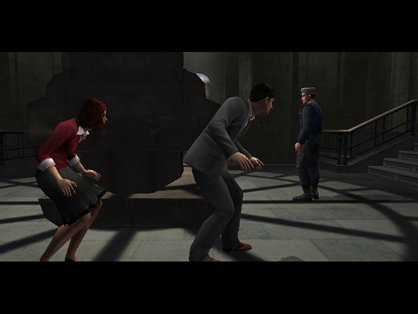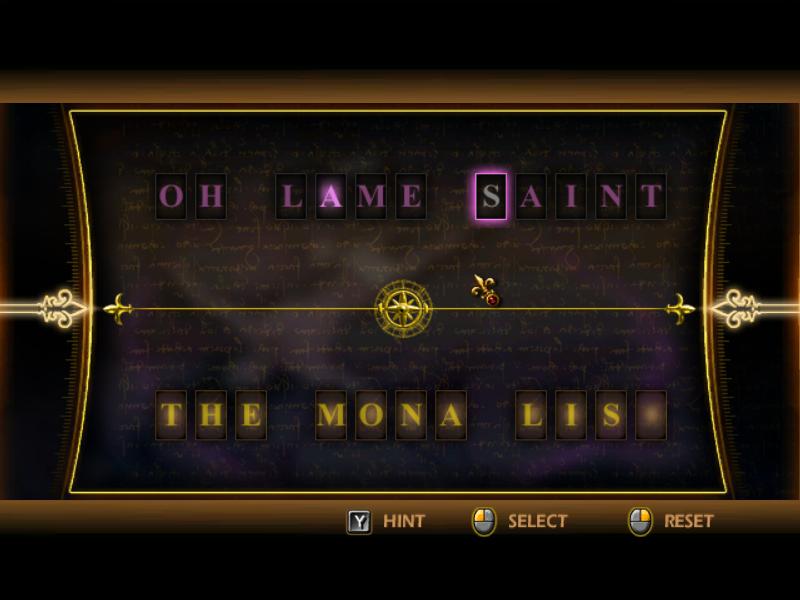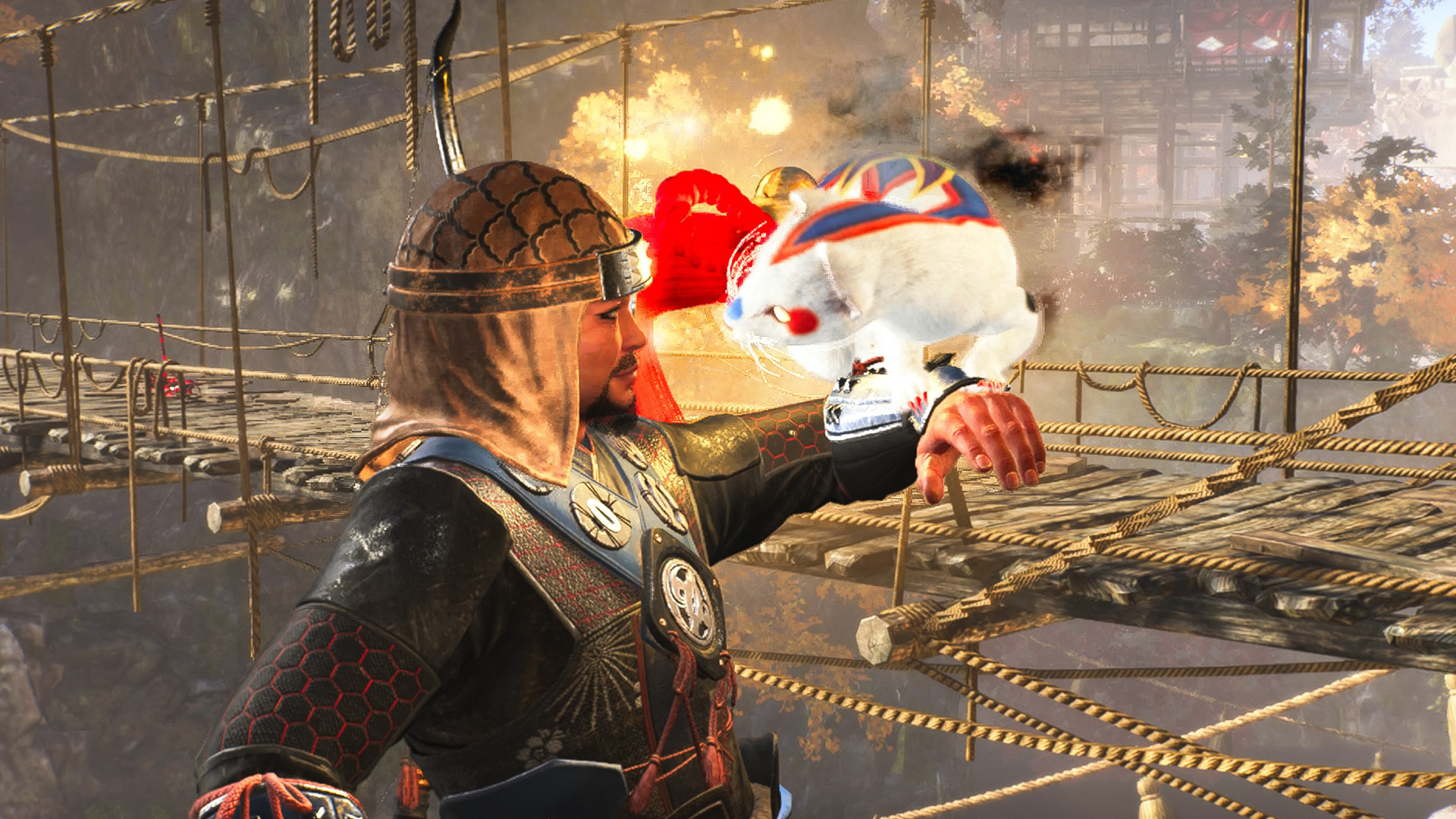Why you can trust GamesRadar+
For a game that's all about using your brain, The Da Vinci Code sure can insult your intelligence. "These symbols don't look familiar," says Langdon, whose whole life revolves around deciphering the meaning of symbols. Turns out you have to solve another puzzle first; then they're suddenly easily deciphered. Argh. And speaking of artificial intelligence, your enemies are pretty brain-dead too; it's so easy to elude the French police and murderous monks, you might as well put your hands over your eyes and scream "you can't see me!"

Usually, adventure games require you to write down the clues as you go, but here's an area where The Da Vinci Code got it right: everything you see, collect or learn in the game is recorded in an in-game database which you can check whenever you like. Inventory objects like cell phones and raw meat (don't ask) can be rotated in 3D too; sometimes inspecting them reveals further clues.
While the Xbox and PS2 versions feel largely the same when it comes to controlling your characters, the PC interface is the worst of the bunch; it's clearly just the console version awkwardly mapped to a keyboard and mouse. The result is a too-floaty mouse that can't be adjusted and text puzzles that can't be solved simply by entering letters on the keyboard. Just another sign of a rushed spam product.

Weekly digests, tales from the communities you love, and more
More info
| Genre | Adventure |
| Description | We can't think of a better license for a puzzle game - and maybe that's why we're so disappointed in how this one turned out. |
| Platform | "PS2","Xbox","PC" |
| US censor rating | "Teen","Teen","Teen" |
| UK censor rating | "","","" |
| Release date | 1 January 1970 (US), 1 January 1970 (UK) |



